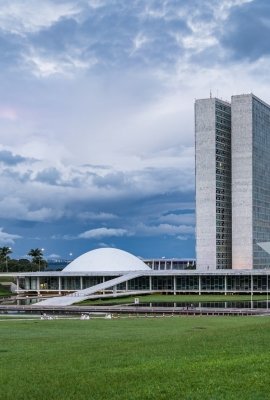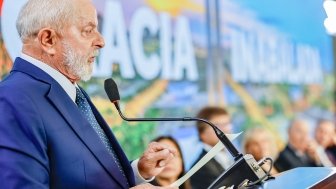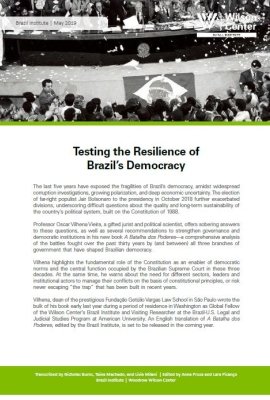Professional Affiliation
Dean, Getulio Vargas Foundation Law School (FGV Direito SP)
Expert Bio
Oscar Vilhena Vieira is the Dean of the School of Law of the Getulio Vargas Foundation (FGV/SP), where he teaches Constitutional Law, Human Rights, and Law and Development. Previously, Oscar Vilhena Vieira was legal adviser for the Center for the Studies of Violence at the University of Sao Paulo (1990-1996) and executive secretary of the Teotonio Vilela Commission for Human Rights (1989-1991). He served as state attorney for Sao Paulo (1993-2003) and as executive secretary of the United Nations Latin American Institute in Brazil (1997-2002). In 2000, he founded and directed Conectas Human Rights and the Pro Bono Institute. He has written several books and academic articles on constitutional law, human rights and law and development, and has also been active as a pro bono lawyer, including in several human rights cases before the Brazilian Supreme Court.
He is is member of a number of civil society organizations and academic programs advisory boards, including OSI - Human Rights, Pro Bono Institute, National Agency for the Rights of Children (ANDI), and the Law School´s Global League (of which he was formerly president). He has a B.A. in law from the Catholic University of Sao Paulo; a LL.M. from Columbia University in New York; a M.A. and Ph.D. in political science from the University of Sao Paulo, and completed his post-doctoral studies at the Centre for Brazilian Studies at Oxford University.
http://direitosp.fgv.br/#
http://www1.folha.uol.com.br/colunas/oscarvilhenavieira/
http://buscatextual.cnpq.br/buscatextual/visualizacv.do?id=K4773837U2
Wilson Center Project
Thirty Years of Constitutional Democracy
Project Summary
Brazilian transition to democracy culminated by the adoption of new constitution in 1988. This constitution could be characterized as a “maximization compromise”. Produced by an extremely inclusive and fragmented constitutional assembly, the constitution resulted in an outsized, detailed and ubiquitous document that incorporated the major interests of a large number of social, economic and political actors presented at its foundational moment. The purpose of this book is to evaluate the Brazilian constitutional experience in the last 30 years, with special attention to the specificities of the Brazilian constitutional model, the operation of the political system, the evolution of fundamental rights and social welfare, and role occupied by the judicial system, in particular the Supreme Court. A final section will discuss the constitutional responses of the political crises opened corruption scandals and the decline of the economy.
Major Publications
Direitos Fundamentais : uma leitura da jurisprudência do STF. São Paulo : Malheiros Editores, 2017, v.1. p.632
Ambitious constitutions: prominent courts In: Comparative Constitucional Law in Latin America.1 ed.Cheltenham : Edward Elgar Publishing Limited, 2017, v.1, p. 253-275.
Inequality and the subversion of the rule of law In: Law and Society in Latin America: A New Map (Law, Development and Globalization).1 ed.New York : Routledge Taylor & Francis Group a GlassHouse Book, 2015, p. 23-42.









